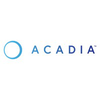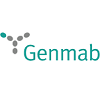Please note that this position is based in Princeton, NJ. Acadia's hybrid model requires this role to work in our office three days per week on average.
The Director, Risk Management (RM) is responsible for overseeing the Acadia Risk Management System including the process for signal detection and safety issue assessment and for leading any related risk management or epidemiologic activities for both marketed and investigational products at Acadia.
This individual ensures risk management planning and implementation activities are consistent with US, EU and international guidelines and regulations and industry best practices.
This individual maintains a thorough knowledge of pharmacovigilance signal detection and risk management methods to ensure thorough monitoring of safety signals, and applicable risk mitigation strategies are in place as appropriate.
They will provide project leadership for the development and implementation of epidemiology methods and technology used in the assessment of potential and identified risks.
The Director will help build the RM infrastructure to optimize benefit-risk throughout the life cycle of Acadia products.
Primary Responsibilities
- Leads the development and management of a comprehensive risk management system for risk detection, risk assessment and risk minimization for all products.
- Integral member of safety signaling committee and potentially other internal multi-disciplinary teams as assigned.
- Ensures Risk Management System and Risk Management Plans (marketed product and developmental) are compliant with US, EU and International regulations and standards including ICH and EU GVP.
- Support any applicable regulatory submissions including Marketing Authorization Applications (MAA), New Drug Applications (NDA) and Biologic License Applications (BLA).
- Manages safety related committees, including the Signaling Committee, Executive Safety Committee, and SERM team.
- Oversight and Management of Empirica and Topics to ensure all safety signals are documented appropriately.
- Directs and collaborates on the development of product specific Risk Evaluation and Mitigation Strategy (REMS) in the event needed.
- Manages process related to the REMS delivery team and general oversight of REMS programs for Acadia products where a REMS would be required.
- Oversight and collaboration with stakeholders for preparation of Periodic Benefit Risk Evaluation Reports (PBRERs) for marketed products.
Ensure data analysis provided are accurate and support logical safety conclusions.
- Ensure sound safety analysis and responses to regulatory query as applicable, including in response to PBRER assessment report.
- Directs and collaborates on the development of Risk Management Plans (RMPs / dRMPs), as required for Acadia’s marketed and investigational products.
- Assure successful completion of any future RMP commitments including post-authorization safety studies (PASS) and measuring the effectiveness of any risk minimization strategies.
- Directs and collaborates on the production of Safety Discussion Documents (SDDs) in collaboration with Safety Physicians to assess and track safety signals.
- Functions as a subject matter expert internal to DSP for epidemiology and provides in-house epidemiology expertise to other departments upon request.
- Partners with Clinical Development and Medical Affairs teams in clinical trial planning regarding creation and conduct of risk management strategies utilizing pharmacoepidemiology research techniques (as applicable).
- Provides estimates of incidence and prevalence of health conditions, disease progression and disease-specific risk factors.
- Responsible for analysis of safety data requests from Health Authorities in collaboration with safety physicians; Authors epidemiology relevant information for submission to health authorities as required, and provide support for manuscripts for publication.
- Provides epidemiologic consultation on the identification and assessment of safety risks, safety data interpretation as well as observational study and registry design, as needed.
- Consults with safety systems programmers in the development of standard adverse event and tables generated for signal detection.
- Draft SOPs and work instructions related to risk management, epidemiology and signal detection.
- Collaborate with Clinical Development, Medical Affairs and others to design, implement, and publish study results.
Education / Experience / Skills
Master’s Degree in Public Health or related field required. Targeting 10 years of progressive applied epidemiology experience in a regulated biotechnology or pharmaceutical industry required or PhD with 4 years of progressive applied epidemiology experience.
Prior experience with Drug Safety and Risk Management strongly preferred. An equivalent combination of relevant education and experience may be considered.
Key Skills :
- Experience in regulatory requirements and guidelines pertaining to Drug Safety and Pharmacovigilance are required.
- Proficiency in performing data mining activities for analysis of safety data.
- Experience with publishing original research in peer-reviewed journals and formal presentations at scientific meetings preferred.
- Must be proficient in MS Office Suite.
- Proficiency with standard desktop and pharmacovigilance computing programs such as Argus and Arisg preferred.
- Proficiency with Empirica / Topics, Spotfire or other signal management tools preferred.
- Excellent written and oral communications. Ability to effectively communicate (verbal and written) and defend findings and recommended strategies and activities to address these findings.
- Ability to prioritize and organize work to meet deadlines.
- Excellent project and time management as well as strategic planning skills.
- Ability to work independently as well as in a team environment.
- Ability to serve on multiple interdepartmental teams and to act as a team leader when appropriate.
- Ability to apply relevant FDA, EU and ICH guidelines, initiatives and regulations governing pharmacovigilance activities for both clinical trial and post-marketing environment.
Physical Requirements
While performing the duties of this job, the employee is regularly required to stand; walk; sit; use hands to finger, handle, or feel;
reach with hands and arms; climb or balance; stoop, kneel, crouch, see, talk or hear in a standard office environment and independently from remote locations.
Employee must occasionally lift and / or move up to 20 pounds. Ability to travel independently overnight and work after hours if required by travel schedule or business needs.
LI-MS1
LI-HYBRID
What we offer you (US-Based Employees) :
- Competitive base, bonus, new hire and ongoing equity packages
- Medical, dental, and vision insurance
- 401(k) Plan with a fully vested company match 1 : 1 up to 5%
- Employee Stock Purchase Plan with a 2-year purchase price lock-in
- 15+ vacation days
- 14 paid holidays plus one floating holiday of your choice, including office closure between December 24th and January 1st
- 10 days of paid sick time
- Paid parental leave
- Tuition assistance







